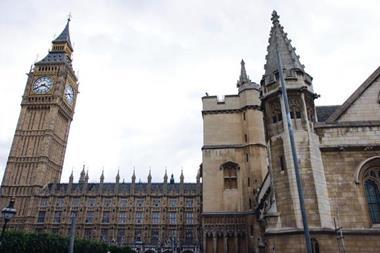Awareness of the macro-risks emerging from climate change could help risk managers engage with their boards on a strategic level, says a director of HSBC insurance brokers
Big companies should consider taking a more proactive approach to some of the emerging risks and opportunities presented by sustainability issues arising from climate change, said Sunny Sehgal, assistant director, environmental risk, HSBC insurance brokers.
Sehgal was speaking ahead of his joint workshop—‘The next 200 years: Managing climate change and sustainability risks’—at the AIRMIC conference in Edinburgh.
Risk managers working for corporates need to appreciate and understand the mega-risks associated with climate change and sustainability, and proactively apply that knowledge to their business situations, said Sehgal. In the workshop, he plans to focus on climate change and environmental liability as issues that are panning out as risks and opportunities.
Macro-risks such as water scarcity, rising oil, energy and commodity prices are often considered beyond the reach of individual companies. ‘That is true,’ says Sehgal, ‘but companies need to understand these risks and how they affect them.’
He continued: ‘These are some themes that risk managers can take back to the board and engage with them on a strategic level.’
“HSBC is now at the stage of looking at the impact of climate change on a strategic level.
Sunny Sehgal, assistant director, environmental risk, HSBC insurance brokers
HSBC is prepared for climate change liabilities, said Sehgal. ‘We are pretty far down the line when it comes to mitigation and reducing our carbon footprint.’
‘The next stage is looking at the impact climate change will have on a strategic level,’ he said.
The group is looking at how today’s climate is adapting and how, as a business, it can prepare for the emerging opportunities and risks. ‘Climate change might adversely affect our customer groups in some of the most vulnerable areas where freak weather events could occur.’ HSBC has also scrutinised its investments to ensure it is not exposed in areas that could be affected by climate change, such as agriculture.
In collaboration with the United Nations Environment Programme Finance Initiative, HSBC has identified nine global sustainability issues considered vital for their urgency, the scale of potential impacts and the integral role that insurance can play in addressing them. They include: Climate change, health, natural resources, microinsurance, emerging man-made risks, recycling, lifelong income, environmental liability, and internal efficiency.




















No comments yet